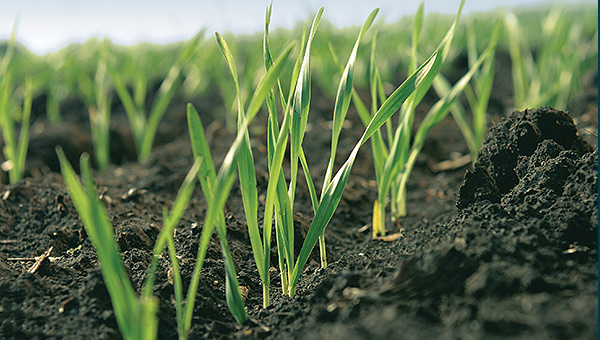Soil profile and its effect on disease is a persistent myth that is proving a challenge to dispel. Some growers continue to believe that seed-borne and soil-borne diseases need cool, damp soil temperatures to infect crops. While different diseases react in varying ways depending on the region, the fact is that if you have different inoculums in your soil, your seed is at risk for disease regardless of the soil temperature—and you could seriously benefit from the protection a versatile seed treatment can offer.

In Canadian agriculture, the Prairie provinces are often referred to as a single growing region, when in fact, the growing conditions‒from East to West and North to South–couldn’t be more different. A good example is the difference in soil temperature. In Alberta during seeding, the soil temperature is generally cool, while in southern Manitoba soil temperature skews warm, with Saskatchewan's soil temperature range falling somewhere in the middle. Accurately measuring soil temperature allows for slightly different disease profiles depending on where you farm.
That being said, the diseases that cause the biggest risk to your crop remain the same Prairie-wide, with a broad range of incidences or severity depending on the region. Fusarium graminearum, C. sativus and Pythium spp. can cause the most seed-borne and/or soil-borne damage to your crops. Not every crop is susceptible to the same disease, and crops react to disease differently. Treated seed provides early season protection for your crops from these main diseases.
Testing your seed will help identify seed-borne diseases, but to determine the levels in the soil, you need to look at the previous seasons. Signs and symptoms of disease include dark roots or brown lesions on the roots or coleoptile. Once the crop has emerged, poor establishment and plant stand uniformity can also be a sign. Later in the season, lower seed counts are a red flag.
While the severity of outbreaks may vary from province to province, that does not necessarily mean reduced levels of similar inoculum are in the soil. The spores that cause disease move easily, and regions that have had minimal inoculant levels in the past few years could have extreme levels today.
Raxil fungicidal seed treatments for cereals provide first-class control of all major soil-borne and seed-borne diseases for a healthy, stronger emerging crop. Regardless of soil temperature, Raxil's potent active ingredients aid in root development and help create larger plants with increased vigour and higher yield potential.
Just remember, if the threat of soil-borne or seed-borne diseases are present, investing in a high-quality fungicidal seed treatment will ensure you are protecting your crop’s full potential.